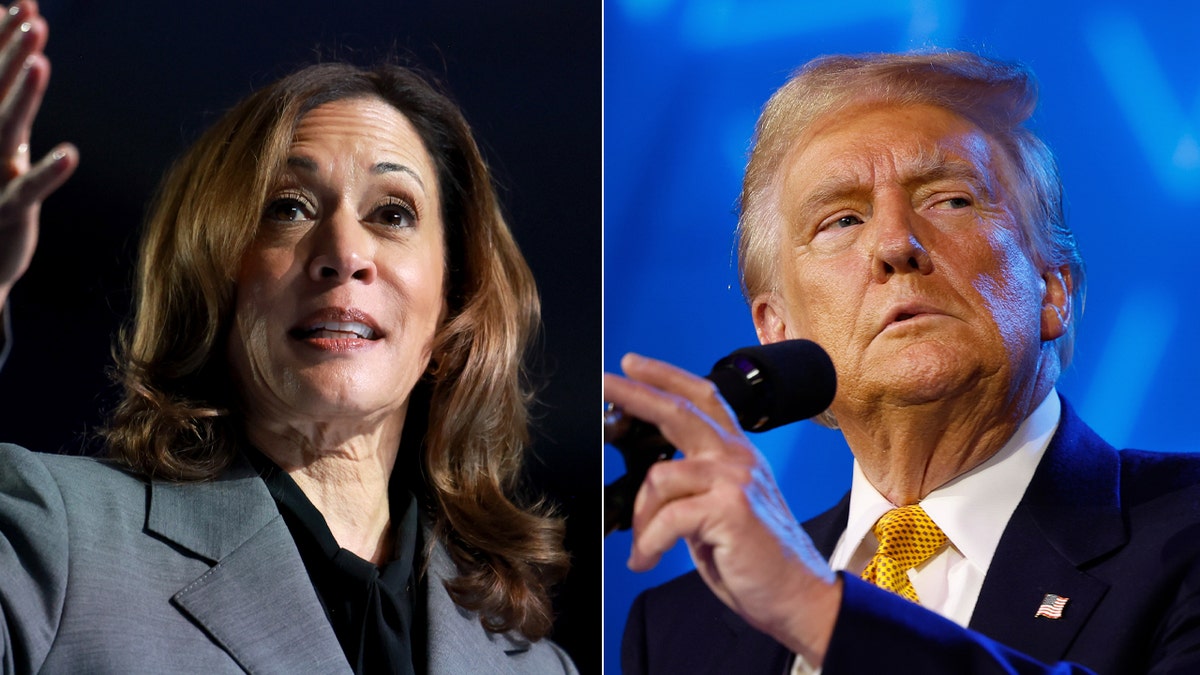Fox News Flash top headlines for August 30
Fox News Flash top headlines are here. Check out what's clicking on Foxnews.com.
America’s political leaders have a spending problem.
They know entitlement programs feature benefit promises far exceeding their tax base, but have done nothing to make them sound. Meanwhile, both parties demand more spending increases — despite the national debt soaring to $35 trillion, or more than $100,000 for each American, rich and poor alike. Under rosy assumptions, over $20 trillion in debt is projected to be added over the next decade.
Yet despite the foreboding outlook, the major presidential campaigns have no plan to deal with current structural deficits and are outbidding each other to make them worse. For them, the buck stops elsewhere. That may be good short-run politics, but it will only make the inevitable bill bigger and even harder for everyday Americans to pay.
Some argue tax cuts are to blame for the soaring debt. But as data from the nonpartisan Congressional Budget Office shows, revenue has remained largely stable while spending has grown significantly above prior levels.

Vice President Kamala Harris and former President Donald Trump aren't just competing to win the presidency. They are trying to outspend one another. (Getty Images)
Much of the growing debt is baked into the budgetary cake, and experts have long warned about rising costs when the Baby Boom generation retires. But growing Social Security payouts — long ago engineered to rise faster than prices — are only part of the problem. Soaring health spending, driven by the same demographic factors and compounded by exploding medical costs, is an even bigger challenge.
America’s mountain of debt has been exacerbated by massive so-called emergency spending enacted by both parties. During the pandemic, legislation added over $5 trillion to the debt. Now the nearly $1 trillion in annual interest on the debt exceeds all federal spending on children, and defense spending, too.
Efforts to balance the budget are repeatedly dismissed. As chairman of the House Budget Committee, one of us regularly proposed and passed balanced budgets, only to see hope for such discipline overcome by a desire for ever-greater spending. Important-sounding commissions (including one dubbed the "supercommittee") issued detailed recommendations that were mostly ignored.
Experts produced reams of data showing nations deep in debt inevitably reach a financial crisis, even as proponents of modern monetary theory (MMT) argued no amount of spending is too great. According to MMT advocates, the federal government can always print more money.
Americans have already experienced where inaction and that illogic lead. During the pandemic, former Obama Treasury Secretary Larry Summers warned that massive new federal spending would lead to significant inflation, which is exactly what happened, with prices growing 20% since the start of the Biden-Harris administration.
CLICK HERE FOR MORE FOX NEWS OPINION
The Federal Reserve’s response led to the highest interest rates in two decades, helping drive the monthly mortgage payment for a median-priced home up by over $1,000. Lower-income Americans spend a greater share of their income on housing, so such rising costs are just one example of why they tend to suffer most from inflation and higher interest rates.
Yet despite expressing concerns about inflation, both presidential tickets propose even bigger deficits. In fact, they seem to be in a bidding war to make them worse. Former President Donald Trump proposed exempting tip income from federal taxes, and Vice President Kamala Harris quickly followed suit. Both ignored the 10-year costs of this proposal, which stretch into hundreds of billions of dollars.
Republican vice-presidential nominee JD Vance suggested more than doubling today’s $2,000 child tax credit to $5,000, which Harris one-upped by proposing $6,000 payments in a child’s first year. Senator Vance hasn’t spelled out important details of his plan, but we know most of Harris’s plan comprises bigger benefit spending instead of tax relief. Both proposals would cost over $1 trillion during the next decade.
Yet despite the foreboding outlook, the major presidential campaigns have no plan to deal with current structural deficits and are outbidding each other to make them worse. For them, the buck stops elsewhere. That may be good short-run politics, but it will only make the inevitable bill bigger and even harder for everyday Americans to pay.
Neither campaign has a plan to cover the new costs. According to the Penn Wharton Budget Model, counting their economic effects, Trump’s plans would increase deficits by $4 trillion versus Harris’s $2 trillion. But that assumes Harris doesn’t revive the massive spending plans she promoted as one of the most liberal members of the Senate. Her plans included a ruinously expensive Medicare-for-all proposal, along with $2,000-per-month stimulus checks for most Americans costing $21 trillion. If you believe a Harris administration wouldn’t revive such proposals during the next economic crisis, you haven’t paid attention to recent Washington policymaking.
CLICK HERE TO GET THE FOX NEWS APP
While both campaigns suggest we can have higher spending and debt alongside lower prices and interest rates, recent experience suggests otherwise. So where does the buck really stop? That is, who will ultimately pay for all this?
The reality is every American will pay, especially those with modest incomes and younger Americans who will suffer the longest from higher taxes, inflation and interest rates. We should demand more from our leaders than promises of bigger giveaways, followed by empty handwringing about the soaring debt and financial pain that inevitably result.
Matt Weidinger is the Rowe Fellow in poverty studies at the American Enterprise Institute. He is a former deputy staff director of the House Committee on Ways and Means.











































